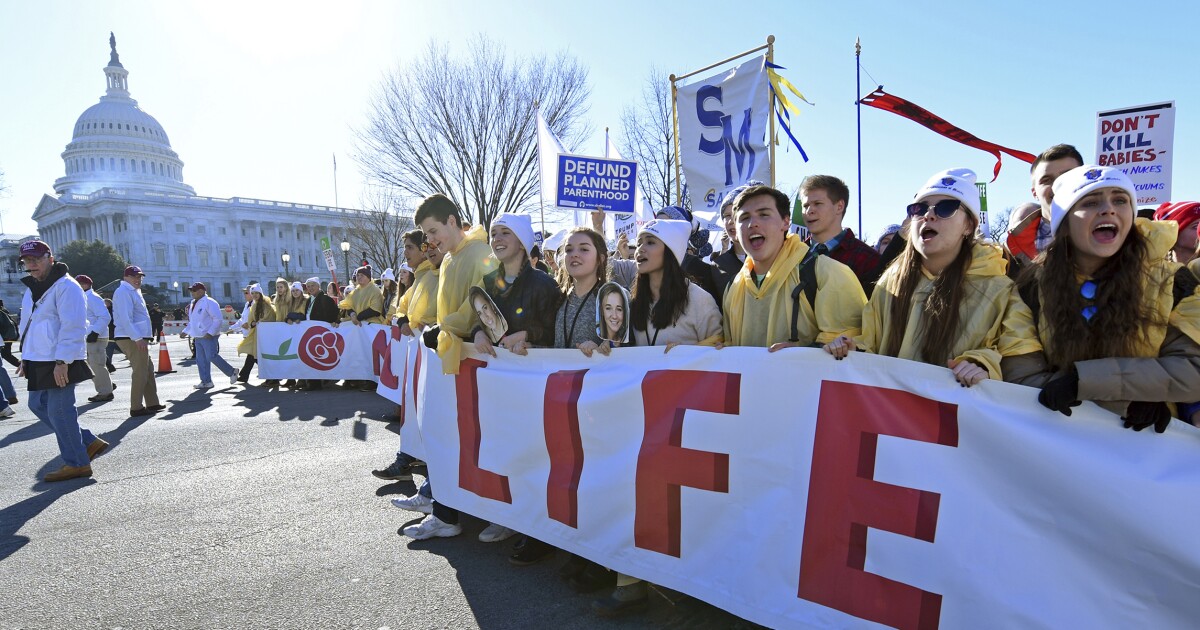

Several state legislatures appear poised to consider new abortion restrictions next year, potentially adding to the dozen-plus states that have already adopted new restrictions since the Supreme Court said in June that there is no constitutional right to abortion.
State lawmakers in Nebraska, Ohio, South Carolina, and Florida have signaled they might hear proposals to limit access to the procedure in the next legislative session.
ABORTION RIGHTS GROUPS UPSET OVER A LACK OF TITLE X FUNDING BOOST IN OMNIBUS
Gov. Ron DeSantis (R-FL) and leaders of the Republican-led legislature have suggested in recent weeks that they would support proposals to further restrict abortion next legislative session. DeSantis already signed legislation earlier this year that banned most abortions after 15 weeks in the state, calling it the most “significant protection for life in this state in a generation.”
GOP leaders have acknowledged they might consider legislation to further restrict the 15-week limit next year, such as scaling it down to 12 weeks, but have yet to come to a consensus on an exact bill.
“I personally am pro-life and would like to see us move more in that direction,” incoming Florida House Speaker Paul Renner (R) told the Tampa Bay Times/Miami Herald last month. “But I want to hear from my colleagues in the House and my colleagues in the Senate before we take any steps in that direction.”
South Carolina’s Republican-led legislature already considered new abortion laws this year that would ban most abortions from conception with only limited exceptions, though the Senate rejected the proposal. With support to further restrict abortion access in both chambers, it’s likely that discussions will resume in 2023.
GOP lawmakers in Nebraska also fell short of the votes they needed to pass legislation in August that would restrict abortions past 12 weeks of pregnancy, down from the current 20-week limit, though it’s likely to be revisited next year. Incoming Gov. Jim Pillen (R) has indicated he would support any additional abortion measures.
“We can and will protect innocent life,” Pillen said at his election night victory party, according to the Nebraska Examiner.
Meanwhile, abortion laws in at least eight states remain blocked pending further review within the court system, which could come next year.
CLICK HERE TO READ MORE FROM THE WASHINGTON EXAMINER
An Ohio abortion law that took effect after the Supreme Court decision, restricting most abortions after a fetal heartbeat is detected, has remained blocked since October after a Hamilton County court ruled the law’s language was too vague. GOP lawmakers in the state briefly considered drafting a new bill this month that would clarify the language in the abortion law, though it failed to advance. Some lawmakers have since suggested that they plan to bring the issue back up in the next session.







